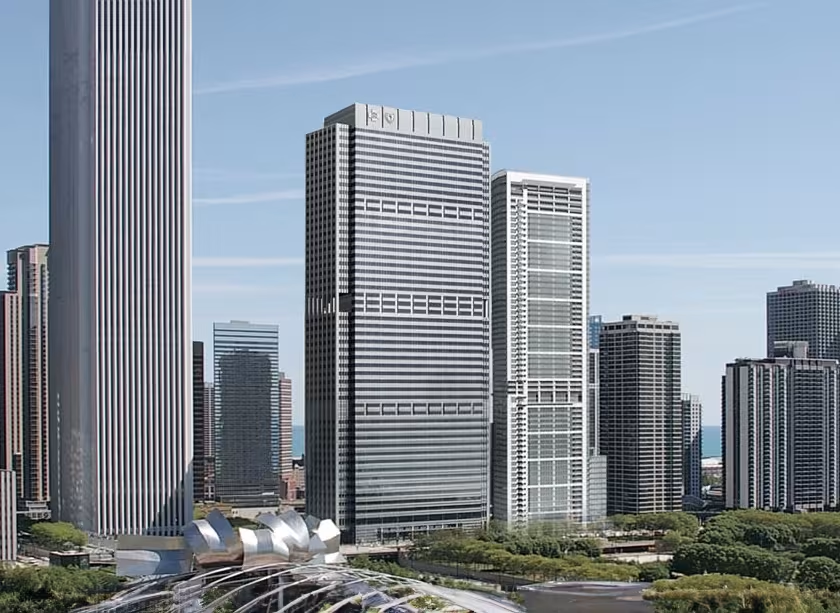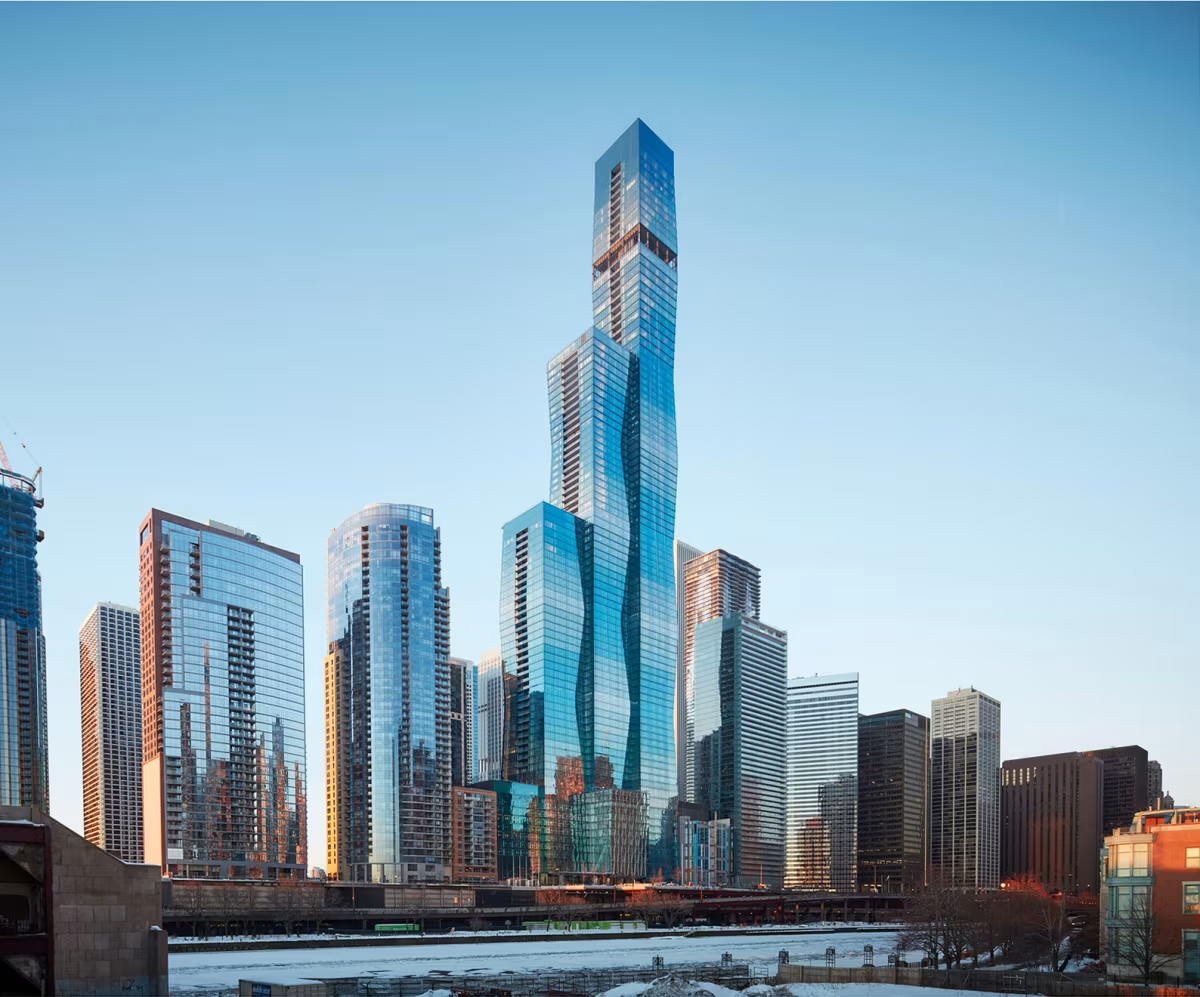Blue Cross Blue Shield Tower vs St. Regis Chicago


Comparing the Blue Cross Blue Shield Tower and the St. Regis Chicago is interesting because they both rise in Chicago, IL, yet they were conceived by two different design teams, Goettsch Partners and Studio Gang Architects, and were completed at different points in time. They were finished over two decades apart.
This contrast within the same city allows us to see how different creative minds interpreted the evolving needs of Chicago across time.
Let's take a closer look!
Height & Size
The St. Regis Chicago is clearly the larger tower of the two, both in terms of height and number of floors. It rises to 1194ft (364m) with 101 floors above ground, while the Blue Cross Blue Shield Tower reaches 745ft (227m) with 54 floors above ground.
Of course, each project may have faced different briefs or regulatory constraints, which we don't really know about and could also explain the outcome.
Architectural Style
Both the Blue Cross Blue Shield Tower and the St. Regis Chicago were designed in line with the aesthetic conventions of the Contemporary style.
Back then, theContemporary was still an emerging movement, so both giving it a pioneering role. By contrast, the St. Regis Chicago came later, when the style was already more established.
Uses
The Blue Cross Blue Shield Tower is primarily commercial, while the St. Regis Chicago is primarily residential.
The St. Regis Chicago incorporates a 5-star hotel with 192 rooms. More information is available at the official website.
The St. Regis Chicago offers 393 residential units.
Both towers provide significant parking capacity, with Blue Cross Blue Shield Tower offering 5226 spaces and the St. Regis Chicago offering 295.
Structure & Facade
Both the Blue Cross Blue Shield Tower and the St. Regis Chicago rely on a Frame structural system.
A frame structure uses a grid of columns and beams to carry the building's loads. This frees the walls from structural duties, allowing for flexible floor plans and larger windows.
They also employ the same type of facade, a Curtain Wall facade.
A curtain wall is a non-load-bearing facade hung from the structural frame. It is anchored to floor slabs and transfers only its own weight and wind loads, allowing for sleek, glassy exteriors.
| Blue Cross Blue Shield Tower | St. Regis Chicago | |
|---|---|---|
| Goettsch Partners | Architect | Studio Gang Architects |
| 1995 | Construction Started | 2016 |
| 1997 | Year Completed | 2021 |
| Contemporary | Architectural Style | Contemporary |
| Commercial | Current Use | Residential |
| 54 | Floors Above Ground | 101 |
| 208 | Last Floor Height | 351 |
| 227 m | Height (m) | 364 m |
| 213,676 m² | Usable Area (m²) | 131,400 m² |
| Frame | Structure Type | Frame |
| Steel | Vertical Structure Material | Reinforced Concrete |
| Concrete | Horizontal Structure Material | Reinforced Concrete |
| No | Facade Structural? | No |
| Glass, Granite, Led Lights | Main Facade Material | Aluminum, Glass |
| Walsh Construction Co | Main Contractor | James McHugh Construction Co. |
| Health Care Service Corporation (HCSC) | Developer | Magellan Development Group |
| Cosentini Associates | MEP Engineer | DbHMS |
| Magnusson Klemencic Associates | Structural Engineer | Magnusson Klemencic Associates |
| Permasteelisa Group | Facade Consultant | Curtain Wall Design And Consulting And Lee Herzog Consulting |
| IL | State | IL |
| Chicago | City | Chicago |
| 300 E. Randolph St. | Address | 363 East Wacker Drive |